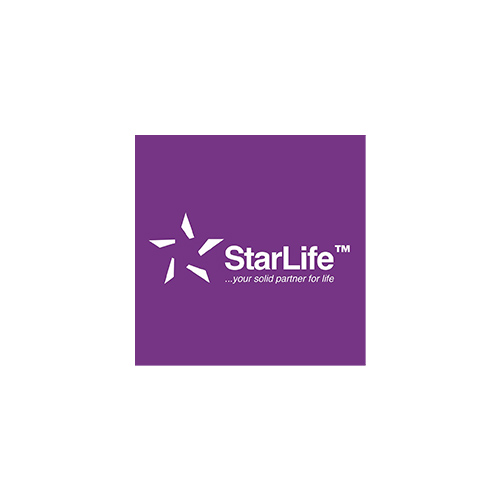
Cryptocurrency investment is gaining traction globally, and Ghana is no exception. With the increasing adoption of digital assets, more Ghanaians are exploring cryptocurrency as an alternative investment. However, with high potential returns come certain risks that every investor should consider. This guide breaks down the opportunities and risks involved in cryptocurrency investments in Ghana, helping you make informed decisions.
Understanding Cryptocurrency
Cryptocurrency is a form of digital currency that operates on decentralized networks using blockchain technology. Unlike traditional currencies, cryptocurrencies aren’t issued by governments or financial institutions, which makes them highly decentralized. Popular cryptocurrencies like Bitcoin (BTC), Ethereum (ETH), and Binance Coin (BNB) have seen massive growth and attracted global interest as alternative assets.
Opportunities of Investing in Cryptocurrency in Ghana
1. Potential for High Returns
The value of certain cryptocurrencies has surged dramatically over the past few years, offering early investors significant returns. For example, Bitcoin’s value increased from just a few cents to thousands of dollars in just over a decade. Although past performance doesn’t guarantee future results, cryptocurrencies offer a high-risk, high-reward opportunity.
2. Increased Financial Inclusion
Cryptocurrency allows people in unbanked or underbanked regions, including parts of Ghana, to participate in financial markets without needing a bank account. Through mobile wallets and crypto exchanges, Ghanaians can store, send, and invest in digital assets, opening new financial possibilities for individuals with limited access to traditional banking services.
3. Diversification of Investment Portfolio
As a non-traditional asset class, cryptocurrency can provide diversification to an investment portfolio, potentially balancing risks across other assets like stocks, bonds, and real estate. Including crypto as part of a diversified investment strategy can help protect against traditional market volatility.
4. Decentralized Financial Opportunities
Decentralized finance (DeFi) applications are an extension of cryptocurrency that allows users to earn interest, borrow, lend, and invest through decentralized platforms. In Ghana, DeFi platforms offer a range of financial services that might otherwise be inaccessible, presenting innovative investment opportunities for tech-savvy investors.
5. Remittance Alternatives
Cryptocurrency offers an alternative for remittances, allowing people to send and receive funds internationally with lower fees and faster transactions than traditional money transfer services. This is particularly beneficial in Ghana, where remittances are an essential part of household income.
Risks of Investing in Cryptocurrency in Ghana
1. High Volatility
Cryptocurrency prices can fluctuate dramatically within a short time frame. Bitcoin, for example, has experienced significant swings in its market value within days. This volatility poses risks for investors, especially those new to the market or unable to absorb financial losses.
2. Regulatory Uncertainty
Cryptocurrency regulation remains a grey area in Ghana. While there is no law prohibiting the use of cryptocurrencies, the Bank of Ghana has issued cautionary statements on the use of digital currencies. Regulatory uncertainties can impact the cryptocurrency market, and future regulations could potentially restrict or tax crypto-related activities in Ghana.
3. Security Concerns
Cryptocurrency exchanges and wallets are prone to hacks and fraud. Although security measures have improved, it’s still critical for investors to store their digital assets in secure wallets (preferably hardware wallets) and only use reputable exchanges. Losing access to a wallet or being a victim of a scam can lead to unrecoverable financial losses.
4. Lack of Consumer Protections
Unlike bank deposits, which are typically protected by insurance in case of bank failure, cryptocurrencies lack similar protections. If an exchange or wallet provider fails, the investor may lose their entire holdings. This lack of consumer protection makes cryptocurrency investments riskier than traditional investments.
5. Limited Acceptance and Use Cases in Ghana
While cryptocurrencies are growing in popularity, the level of acceptance in Ghana is still limited. There are relatively few businesses that accept cryptocurrency as a form of payment, meaning the practical use of digital assets remains constrained. This limits liquidity and may affect an investor’s ability to convert cryptocurrency to cash.
How to Invest in Cryptocurrency Safely in Ghana
1. Choose a Reliable Exchange
Reputable exchanges like Binance, Coinbase, and Yellow Card offer user-friendly platforms with enhanced security features and regulatory compliance. These platforms also provide fiat-to-crypto trading pairs, making it easier to buy cryptocurrencies using the Ghanaian Cedi (GHS).
2. Consider Secure Storage Options
For long-term holdings, consider using a hardware wallet, like Ledger or Trezor, which provides offline storage and extra security for your digital assets. If you prefer software wallets, choose options with robust security features, such as two-factor authentication (2FA) and encryption.
3. Diversify Your Portfolio
It’s wise to avoid putting all your money into a single cryptocurrency. Diversifying across various assets, including stablecoins like Tether (USDT) or Ethereum, can help manage risks in a volatile market.
4. Stay Updated on Regulatory Developments
The cryptocurrency regulatory landscape is evolving worldwide, and changes can impact the market. Stay informed about any announcements from the Bank of Ghana or other regulatory bodies, as future regulations may affect cryptocurrency ownership and trading.
5. Invest Responsibly
Due to high volatility and risk, it’s essential to invest only what you can afford to lose. Avoid taking on debt to invest in cryptocurrency, and remember that profits are never guaranteed.
Popular Cryptocurrencies to Consider in Ghana
- Bitcoin (BTC): As the first and most widely recognized cryptocurrency, Bitcoin is known for its potential as a store of value.
- Ethereum (ETH): Ethereum is popular for its smart contract capabilities and serves as the foundation for numerous decentralized applications (DApps).
- Binance Coin (BNB): This is the native token of the Binance platform, offering users discounts on transaction fees and other benefits within the Binance ecosystem.
- USDT (Tether): A stablecoin pegged to the US dollar, making it a stable option for those looking to avoid the high volatility of other cryptocurrencies.
Conclusion: Is Cryptocurrency Investment Right for You?
Investing in cryptocurrency can be an exciting opportunity, but it’s essential to understand both the potential rewards and the associated risks. For Ghanaians, cryptocurrency offers access to new financial possibilities, but it requires caution, awareness of regulatory changes, and careful consideration of one’s financial position.
Cryptocurrency may not be suitable for everyone, especially those with low risk tolerance. However, with proper research, secure practices, and a diversified approach, cryptocurrency investments can form part of a balanced portfolio, offering unique opportunities in the modern financial landscape.







